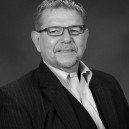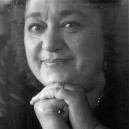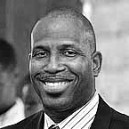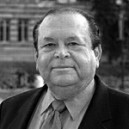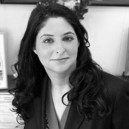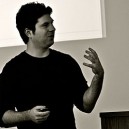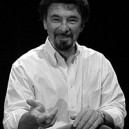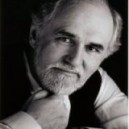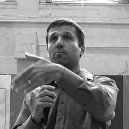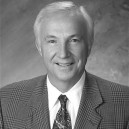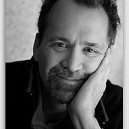Dr. Ritcheson
Consulting Psychologist
Dr. Andrew Ritcheson is one part consultant and one part psychologist specializing in strategy consulting, project management, and execution and assessment.
Dr. Ritcheson earned his bachelor’s degree in Applied Psychology from the University of Sussex in 1999 and he earned his doctoral degree in psychology from the University of Oxford in 2002. Dr. Ritcheson current works as a consultant and splits his time primarily between London and Washington D.C.
He assists clients with any number of issues ranging from strategy development and execution to process improvement and strategic communication to even human terrain analysis and applied psychosocial research. Dr. Ritcheson wants to make it clear that just because he is a "consulting psychologist" doesn't mean he offers a couch and therapy in some office building.
How did you get involved in Psychology?
Psychology was one of my first loves, and I knew I wanted to be involved in the study of human behavior since I was 12 years old. My mother, who was very sensitive to my interests, bought me the Oxford Companion To The Mind, which at 12 years old was certainly an ambitious read. I think that was pretty much what launched me into this field.
It all -- in large part -- stemmed from my interest in human behavior and wanting to better understand what accounted for the good things that people can do, and also to help explain the bad things that sometimes occur.
How did you become involved specifically with consulting psychology?
I had reached a point in my own career where I had been exposed to working with clinical patients and also with companies and different organizations. What occurred to me while I was working with those different clients in parallel is that a lot of the skills, insights, and methodologies that I employed while seeing patients and developing treatment plans, and implementing those plans was that they were equally valuable when implemented toward companies and businesses practices. It presented a bit of a challenge to me, one that I still find very challenging and intriguing. I had these organizations and companies come to me in kind of ill health, with needs, and abnormal "symptomology," they sometimes need to be treated and brought back to health, oriented towards growth and development.
And so I began implementing and utilizing my skills-sets of listening, using empathy, understanding and formulating problems, developing solutions and the like, to listen to businesses and organizations without bias to help people or organizations find their way back to optimal functioning.
How would you describe consulting psychology to individuals looking to understand this specific field of psychology?
A consulting psychologist or clinical consultant, tends to be a person with traditional training or background in clinical psychology or another client discipline. They have opted to use those skills -- whether clinical ones or research ones -- but with a different end user; using those skills on organizations, companies, and corporations. We use the same skills but in a different way.
We are clinical professionals that are experts in our fields, but are able to step in and implement our treatment knowledge to help put a business or organization back on track to growth. So we change their processes or change the way they work and think by using their subject matter expertise and changing that at the organizational level.
This concept can be used in all types of businesses. For instance, let’s take a medical institution. We are able to help a medical institution treat their own patients by using our subject matter expertise, and then we employ our expertise at an organizational level and help organizations implement these changes to provide safer and more effective care to their patients.
Can you describe an average day of work for you, almost a 9-5 synopsis of what you do on any given day?
Generally, you end up swapping your own patient for about one hundred patients (an organization), and instead of having one office to go to, now you have offices all over the place, so it definitely can make your life more complex.
In a hard day as a clinical psychologist, I would be seeing three to five patients back-to-back. Well once you change the end user to organizations and businesses; it’s kind of like seeing a 100-300 patients simultaneously, so it can be very challenging.
Unfortunately, each hour of my day isn’t broken up to reviewing my notes, seeing a patient and then working on a report or patient plan. In this business it all ends up being much more spontaneous. It’s unscripted, and with the skill-set a consulting brings to this business, you end up filling many roles, including manager, subject matter expert, change agent, trusted advisor, and mentor.
What are some of the main takeaways of your education that you use today in your practice?
The skills of active listening, being able to develop detailed and authentic understanding of problems and challenges and being able to formulate and problem solve, being able to lay out treatment plans; then being able to follow up and measure them for clinically significant improvement. I am of the belief that if you can’t measure something that for all intents and purposes it doesn’t exist, so in order to say something is getting better I am only satisfied if I can measure it, and demonstrate it in a quantitative way; much the same way that is used in clinical psychology for patients. Those are all things that I use every day in my practice.
You also have to be able to understand the businesses terminology, so that you understand their language and their needs, and their problems. It’s very important to be able to develop formulations of the problems that reflect the company’s language and needs.
All solutions from my clients come from really listening to the company, and truly understanding their problems in their own words
What are a few of your favorite things about practicing as a Consulting Psychologist?
I would have to say role versatility. As a consulting psychologist I am brought on in a number of different roles, I have to be working on all of the moving parts of a business, which is very exciting. Companies and programs and governments all function in very complicated ways, they all have histories, futures, hopes, wishes, regrets, and aspirations. I feel like they are every bit as human as patients tend to be.
It is a challenge to figure out the best way to approach them and to keep all of the moving parts in one mind, and to bring about measurable change.
What are some of the negatives or difficulties one can expect coming into this career field?
As psychologists we sometimes forget what the word psychology still implies to many people. In a lot of people’s minds every psychologist still has a couch and it’s difficult to shake those beliefs and expectations. In some ways our profession is pigeon-holed.
Consulting psychology breaks this stereotype , taking psychologists and putting them in roles that were traditionally reserved for management personnel, or business consultants.
Do you have any advice for those interested in entering a career as a consulting psychologist?
It’s a balance. The fact of the matter is, to be a good consulting psychologist, you need to be a good psychologist. I think it’s important to develop the broad base of understanding of human behaviors, research methodologies, clinical approaches, the fundamental building blocks. You need to master communication, reading, writing, and speaking. Without those skill-sets you just wouldn’t last long as a consulting psychologist.
Consider taking extra studies in finance, management, business administration, specializations that will help you understand and build bridges to the people they intend to serve.
What is one of your favorite cases that you have worked on?
One of my favorite cases was supporting the standup of a clinical care facility that was working with very complicated PTSD and TBI cases. This was an incredible opportunity to refine the consulting psychologist approach. It involved developing a response to a serious problem we had with returning service members, who were returning from war with co morbid PTSD and TBI, and who faced considerable challenges. Existing treatment models had been in a lot of respects been exhausted, and patients were still unwell, not responding to traditional care, and this was a chance to develop a brand new clinic with different approach to care that would seek to expose these people to the widest range of interdisciplinary expertise, and evaluation and treatment planning. In this case, we had a chance to leverage our clinical consulting expertise, and create an entirely new organizational entity from start to finish. That’s definitely been one of my favorites over the years.
Where do you see the field of consulting psychology going In the future?
The definition of consulting psychology will solidify, and the field will develop a better understanding of itself. There will be more training and accreditation in it. I think it will develop as its use is demonstrated and put into practice. Some of us have been doing it for a while and it’s surprising that it has taken this long for businesses to turn to psychology. Right now with business uncertainty it seems to be the perfect time for this kind of approach, which is a highly human, insightful but robust and data and results driven approach to bringing about positive change, in a time when we are supposed to be doing more with less, and with greater pressures and with greater ambiguity. It is a very interesting career, and it is a great career to be able to develop as a complimentary skill-set outside of clinical practice. I think the future looks very bright, and I’m just grateful to be there as the sun rises on it.
For more information about what exactly a consulting psychologist does and how to become one, please feel free to follow Dr. Ritcheson on his Twitter account.









